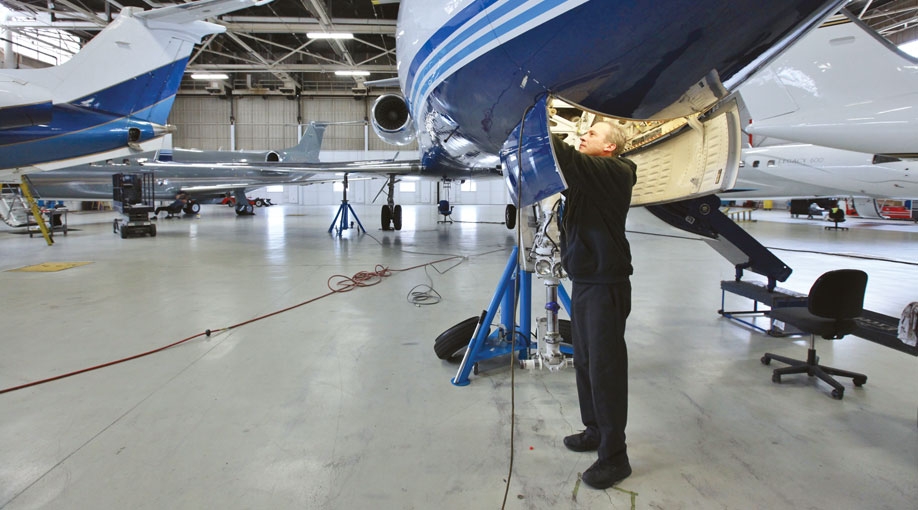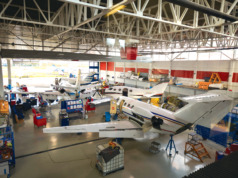
A trustworthy, knowledgeable business aircraft maintenance service provider is one of your most important aviation partners: for safety, to help manage costs, and to protect your investment.
Being informed before you begin evaluating potential maintenance partners shows them that you’ve done your homework and have high expectations for those with whom you work.
These five questions will help you and your flight department identify a dependable maintenance service provider:
1 Do they have experience with your kind of aircraft?
If you drive a Tesla, you don’t want a mechanic who has worked only on motorcycles. Find out how much experience the vendor’s maintenance technicians have with your specific type of aircraft. The vendor you are considering should be able to send you a spreadsheet with the mechanic’s background and qualifications, as well as training certificates. You’re not only interviewing a maintenance provider; you’re interviewing the people who will have their hands on your plane.
2 Are they an authorized service center for your aircraft?
Find out which manufacturers’ maintenance certifications the company holds, and be sure your aircraft is covered. If so, they will be able to correct any items still under warranty, at no cost to you. While working with an authorized service center can save you headaches and money, in smaller cities, that may not be an option. In that case, at a minimum, look for a vendor with a licensed mechanic who is trained on your aircraft.
3 Are they an FAA-approved repair station?
Safety always should be the prime consideration, both for you and your provider. Ask whether they’re an FAA-approved repair station, as well as for the name of their FAA maintenance contact. Ask that FAA representative whether the provider has any FAA violations, and about the caliber of their work.
Make sure processes are in place to ensure complete oversight and transparency to the FAA for all work completed. It’s one of the hallmarks of a responsible maintenance shop.
4 Are they recommended by people your team trusts?
Just as you’d ask your friends and colleagues for their experience with any big purchase you’re considering, your aviation manager should ask colleagues within the industry who they trust for aircraft maintenance.
Find out how long they’ve been working with their provider, whether any issues have arisen, and what they like most (and least) about working with them. The recommendations of people your flight department trusts can go a long way toward finding a trustworthy maintenance provider.
5 Are they cost-competitive?
While cost shouldn’t be the primary driver of your decision-making, it’s certainly a key consideration. For any significant maintenance project, your aviation manager should seek estimates from three different vendors. If one comes in significantly lower than the others, be wary.
For major inspections, repairs, or modifications, vendors often will negotiate, either on the hourly rate or on the markup for parts.
A good maintenance service provider also can help you avoid big costs by staying on top of preventive maintenance and helping to identify small issues before they become bigger, and more expensive to fix. Ask potential providers about their approach to ongoing maintenance, to ensure you’ll be working with a company whose values and priorities mesh with yours. You want a company that is thinking about the long-term viability, safety, and value of your aircraft, and not just on fixing what’s wrong right now.
Knowing the right questions to ask – and not being afraid to ask them – shows potential maintenance service providers not only that you’re informed, but that you will expect complete transparency. Armed with the right information, you’ll be able to make informed decisions about your aircraft’s maintenance. BAA
Ralph Michielli is the former Chief Operating Officer of ExcelAire, a Hawthorne Global Aviation company, where he served as technical liaison to aircraft owners. He is an FAA-licensed airframe and power plant jet aircraft technician.




